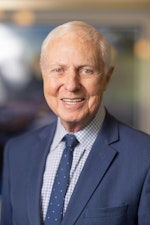Q: I am hearing predictions about the so-called “new normal” for dental practices and for life in general. We have certainly seen many changes caused by COVID-19. Will this new normal continue long-term, or will it diminish as the pandemic begins to ease? It is very difficult to plan for future events amid the current uncertainty. Since you communicate with many dentists and others, what do you see for the future relative to this new normal?
A: The predictions for the “new normal” vary considerably. Currently, much uncertainty exists—including for upcoming US elections—and there is much political and social upheaval as well as the need for reliable treatment or a vaccine for COVID-19. Since all of these factors interdigitate, they will form the outcome we must face. No matter what you do as an individual, you cannot personally change that outcome.
I will share my feelings about the future based on my long life to date, my background in psychology, my experiences, the practice challenges caused by the pandemic, and the known state of confusion, unrest, and anxiety in the US.
As dentists, our professional services are in constant need by the public. We prevent and treat diseases that have been present since the beginning of humankind and show no indication of going away. In other words, dentists have very good job security. Dentistry and most other specialties in the health professions show only slow evolution relative to disease eradication. As a result, the new normal is identifiable only for the immediate future, and it will soon be replaced by another form of new normal.
What can we do to reduce the anxiety we feel and prepare for the many changes we will face in our practices and with our families in the near and distant future?
Understand what you can control
It is critical to understand that you can control only your life and influence those in your immediate scope of activity. Take some time to identify activities in your life that are within your ability to influence. What are you likely to determine? You can influence, plan, organize, direct, and have leadership for yourself, your family, your practice staff, your dental society, those in civic organizations in which you are a member, your religious groups, and your political affiliations, but very few others.
Does it seem logical to worry about the nation or world at-large? No, such concerns are not within your ability to change. Worry about these problems will only add anxiety and fear to your life. However, you can have at least a minor influence in national and global challenges by becoming involved politically, and it is advisable for all of us to do so.
Why not direct your major energies to those activities that you can truly influence? Although discussing the national or world affairs with your family and friends makes interesting conversation, continual thoughts and frustration about these challenges provides only psychological problems for you.
The isolation we’ve had to endure during COVID-19 has taken its toll on many people, especially children, because they worry about issues over which they have no control. Some psychologists state that the psychological damage caused on the global population by governmentally imposed regulations for isolation will have more negative effects over the long term than the actual physiological problems and deaths caused by the disease itself.1
Direct your energies toward issues you can influence
The new normal is for you to determine. You are a highly educated professional. You have endured many traumatic psychological influences to attain that status. During your educational period, you likely learned to live in a relatively coercive environment, with regulations and rules over which you had little or no control.
Now, use those same personal principles and tactics to cope with this new normal. You can’t control the new regulations affected by various governmental and professional agencies about daily infection control, new amalgam regulations, office design, aerosol production, continuing education requirements, travel, and a myriad of other issues. Those in leadership have made decisions that affect you, so you must either determine how to live with these decisions or get into leadership yourself and attempt to change them.
Adapt to change
As a new regulation is developed or a situation that affects our activities becomes evident, I suggest that each of us meet immediately with our office staff, family, and other related groups to determine how best to live with that regulation or condition.
As a personal example, it became obvious a few months ago that travel had to be significantly reduced or eliminated because of the threat of contracting COVID-19 on airplanes. Since the conventional method of delivering continuing education courses required travel to the sites of various dental meetings and travel was not advisable, we had to make some major changes in the continuing education portions of our organizations. All of our conventional face-to-face courses and hands-on courses in both Clinicians Report Foundation and Practical Clinical Courses were revised from live to virtual. This caused significant time, effort, and expense, but it worked in the end. Is this now the new normal? Yes. Will it always be so? No. Many course attendees prefer face-to-face and hands-on courses, so as soon as air travel becomes less complicated, a modified new normal will evolve.
Relative to airplanes, do you like wearing face masks when you fly? I doubt it, but it is better than catching COVID-19. Has a new normal been established for airline travel? Absolutely, but we hope it changes soon.
How to live with change
Change is inevitable in all areas of life. Some people choose to live in the past and condemn the changes, while others cannot wait to see whatever the new change is about to bring forth. Most live in the middle of this continuum.
You have undoubtedly heard the phrase “early adopter” to new ideas or concepts. As an example, automobiles are changing constantly, with a significant percentage of them now being hybrid gas/electric powered, and a smaller percentage are all-electric powered. Electric automobiles have been around in some form for more than 100 years, yet only now are they becoming in vogue.
Some of the changes, such as the one just described, occur slowly. Others are rapid. An example of a rapid change in dentistry was dentist acceptance of the air-rotor dental handpiece introduced in the late 1950s. Air rotors were in nearly all dental offices soon thereafter due to their cutting efficiency, patient acceptance, and reduced procedure time they required.
Some changes are dictated by law, while others are elective. You can easily identify many ongoing changes in each category. You have no choice when the law forces you to change. However, elective changes are up to you. I suggest seeing the positive aspects of unavoidable change and adapting to it as soon as possible. This will help you avoid having it occupy your thoughts until you finally incorporate it into your life.
Elective changes in dentistry—such as cone beam radiography, implants, zirconia crowns, etc.—into your practice are your decisions. This is my suggestion regarding elective changes: If the new concept, technique, device, or technology does something that is impossible to accomplish using other concepts, implement it ASAP. If it does not replace all other concepts in that category, you may elect not to incorporate it in your practice.
Living with change in all areas of life requires us to keep current with changes that are occurring daily. We must make decisions about how to cope with the required changes and whether or not to incorporate the elective changes into our lives.
Summary
The new normal is here, but only for a short time. This is a transforming time for dentistry, as many world problems are present and continue to increase. This article makes suggestions about how to adapt to new rules and regulations, how to decide which elective changes to incorporate into your practice, how to adapt your practice to change, and how to live with the ever-present changes in the profession. The current new normal will soon change to yet another new normal, so get ready!
Author’s note: The following educational materials from Practical Clinical Courses offer further resources on this topic for you and your staff.
Videos:
- Preparing for Your Return to Dental Practice in the New COVID-19 World (item no. V2407)
- Multiple Patient Scheduling—Working Smarter, Not Harder (item no. V4794)
- What Technologies Do YOU Really Need? (item no. V4793)
Courses:
- Paradigm Changes in the Profession— online October 17, 2020
- Ask the Experts—online November 14, 2020
For more information about these educational products, call (800) 223-6569 or visit pccdental.com.
Reference
- Ronsisvalle M. Psychological toll of COVID-19 spreading as pandemic lingers on. Florida Today. July 28, 2020. https://www.floridatoday.com/story/life/wellness/2020/07/28/psychological-toll-covid-19-spreading-pandemic-lingers/5519550002/
Gordon J. Christensen, DDS, PhD, MSD, is a practicing prosthodontist in Provo, Utah. He is the founder and CEO of Practical Clinical Courses, an international continuing education organization founded in 1981 for dental professionals. Dr. Christensen is cofounder (with his wife, Rella Christensen, PhD, RDH) and CEO of Clinician’s Report.







